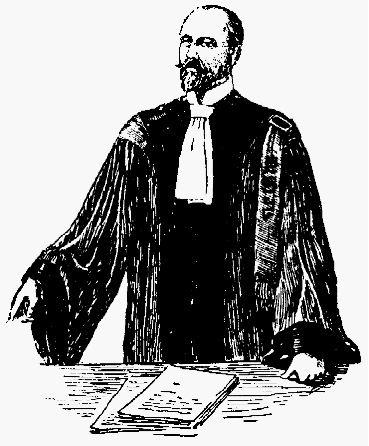An independent and impartial judicial system open to all
An independent and impartial judicial system open to all
Efficiency of Justice
The Council of Europe's activities in the judicial field are based on Article 6 of the European Convention on Human Rights, which states that "everyone is entitled to a fair and public hearing within a reasonable time by an independent and impartial tribunal established by law". This article is one of the pillars of what is generally known as the 'rule of law'.
To encourage the full application of Article 6, the Council of Europe has established a Consultative Council of European Judges, or CCJE, composed exclusively of judges from the organisation's 47 member countries. The role of the CCJE is to strengthen the independence, impartiality and competence of judges.
The Consultative Council has no equivalent in any other international organisation. Its activities are matched by those of the European Commission for the Efficiency of Justice, or CEPEJ, which has a more general remit to develop the standards of judicial systems and public justice services.
Finally, the work of these two bodies is complemented by that of the Consultative Council of European Prosecutors (CCPE) and the Lisbon Network for the training of judges.
European Commission for the Efficiency of Justice celebrates 10 years of action for the efficiency and quality of justice and courts
The European Commission for the Efficiency of Justice (CEPEJ) celebrates its 10th anniversary on 6 December 2012. The event will give an overview of the CEPEJ work over the past 10 years and its contribution to the improvement of the quality of justice and the efficiency of its functioning in the 47 member states of the Council of Europe. It will be followed by the plenary meeting of the CEPEJ, on 7 December, focusing on the new evaluation scheme for European judicial systems in 2012-2014.
Other topics will include the CEPEJ report "Length of court proceedings in the member states of the Council of Europe based on the case law of the European Court of Human Rights", and implementation of a permanent Observatory of justice in Europe.
New recommendations on the management of the means of the public prosecution services
CEPEJ publishes evaluation report on European judicial systems
The European Commission for the Efficiency of Justice (CEPEJ) published on 20 September 2012, its 4th evaluation report on European judicial systems, within the framework of the Conference of Ministers of Justice in presence of the Deputy Secretary General of the Council of Europe, Gabriella Battaini-Dragoni, Ministers of Justice, Secretaries for justice as well as eminent judicial and political persons from the 47 member states of the Organisation. (more...)
European Day of Civil Justice
Celebrated yearly on 25 October, this event aims aims to promote the work of the European Commission and of the Council of Europe in the field of civil justice, through simulation of procedures and information sessions.
Web Content Display
Yambol administrative Court of Bulgaria, Winner of the 2010 Crystal Scales of Justice Prize for innovative Court practices: "Equal before the law, but not always equal before the language – Improving communication between courts and citizens"
The 2010 European Crystal Scales of Justice prize for innovative court practices was awarded on 25 October in Ljubljana, marking the European Day of Civil Justice.
Yambol administrative Court of Bulgaria, Winner of the Crystal Scales of Justice Prize for innovative Court practices
Equal before the law, but not always equal before the language – Improving communication between courts and citizens
Strasbourg, 25.10.2010 - The 2010 European Crystal Scales of Justice prize for innovative court practices was awarded today in Ljubljana, marking the European Day of Civil Justice.
The jury of eminent individuals from the judicial world, examined 50 applications from some 20 member states of the Council of Europe.
Yambol Administrative Court (Bulgaria) won the award for its efforts to help users better understand judicial procedures and related information
Three special mentions were also given to projects from Austria, Finland and Slovenia:
· Promoting safer driving, represented by Regional Court of Linz and FMG Amor (Austrian Mobility Research)
· New way of systematic management of delay reduction projects in courts - combining external expertise and internal participation, represented b y University of Technology and Ministry of Justice (Finland)
· Automated system for enforcement of authentic documents (COVL), represented by the Supreme Court of the Republic of Slovenia
A découvrir aussi
- Un licenciement après des mauvais traitements infligés à des enfants placés
- Le Conseil Constitutionnel modifie encore le code de procédure pénale (à propos des expertises)
- Assassinat de Valentin: 30 ans de réclusion contre Stéphane Moitoiret

